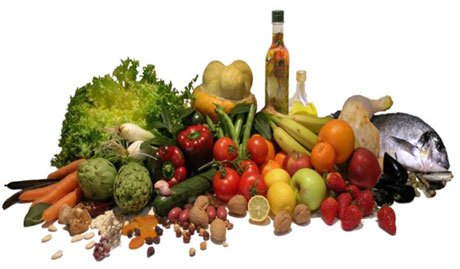Finding nutrition informations is now very easy thanks to various media, magazines, TV, internet… but are we sure that we can find the most accurate and truthful news?
Dr. Balsimelli, nutritionist specialist in nutrition and sports, she will be entertained with us by deal with and refuting, where is necessary, point by point all the theses about nutrition.
Let’s start with a question asked by our readers. What is the role of nutrition in both amateur and professional athletes?
“We are what we eat”, said the philosopher Feuerbached even before Hippocrates…
As is well-known, healthy eating is the indispensable basis for achieving good results even on athletic level… the importance of nutrients.
Carbohydrates: speed and efficiency
The fastest available energy: glucose is stored in the form of glycogen in the muscles and is mainly used in challenging activities (with a high heart rate). Depending on muscle mass, a person practicing sports in leisure can store 300-400 grams of glycogen that corresponds to about 15 slices of bread or 1.5 kg of pasta!
Proteins: the building material of the muscles
During a sporting effort, protein synthesis and metabolism processes are more intense. In sports such as cycling, the protein requirement of 1-1.2 g per kg body weight (athletes with at least 4 hours of training a week) can increase up to 1.4 g per kg body weight. This means an increase in the need of 30 g per day, which can be already integrated with 300 g of lean ricotta.
Fats: long-term energy
An excessive fat diet reduces the degree of muscle efficiency, because, for burning, fat needs more oxygen than carbohydrates.
However, too low intake of fat reduces the ability to perform and provides too low omega-3 (found in salmon, anchovies, sardines, herrings, mackerel, flax seed, flax seed oil and rapeseed and capsules of fish oil). These acids have many positive properties for the health and ability of the mind.
For this reason, it’s advisable to choose low-fat animal foods (meat, sausages, diary products) but to regularly consume fatty fish (eg salmon) and to use olive oil for salad dressing.
Doctor, can you advise us about pre-race meals or workouts?
Pre-race meal is one of the moments to be treated with special attention if we want to optimize our physical performance; everybody, at least once in our sporting life, we faced a competition after having a wrong meal that slowed our digestion but unfortunately also out pace.
But then what are the adequate properties of a meal that precedes sports performance?
Of course, the nutrition will depend on the characteristics of the race and its duration: we will distinguish between competitions of less than one hour and long duration races (about 60 minutes). In all cases, the goal to be achieved is to increase the muscle glycogen concentration. If we are preparing for a racing, to get the maximum increase in glycogenic muscle concentration (2.5 g/ 100 g of muscle tissue) it’s sufficient to increase the daily glucose uptake in the three days preceding the competition, also providing short and low intensity training.
Most carbohydrates (80%) should be complex carbohydrates contained in whole grains (which can be found, for example, in bread and pasta); but also in legumes. Beware of there, since they can create possible gastro-intestinal discomfort due to the incomplete digestion of the fibers contained therein.
The pre-race meal should be easily digestible (we should also be careful with salad) and not very abundant, poor in fiber (to avoid intestinal problems) and must be consumed at least 3-4 hours before the effort so as to allow complete digestion and at the same time allowing the regularization of glycemic peaks.
And the post-workout snack…
Glycogen takes time to be re-integrated…
Muscle glycogen doesn’t reintegrate rapidly; in fact it takes at least 24 hours to return to proper levels after an intense and prolonged workout. That is why nutrition is important throughout the day, though post-workout snack plays the key role in recovering glycogen stock.
Speaking of “timing” means I will have to intervene in the early stages (within 1 hour) of post workout. During this period, the biochemistry of recovery is extremely favorable if it is geared towards proper nutrition. Glycogen syntheses (an enzyme responsible for restoring glycogen stores) which is very active in the first few minutes of post-workout, will play if it finds carbohydrates to be converted to glycogen. In case of resistance training, repair and growth will primarily be favored by functional elements such as mitochondria, while in “weight training” recovery will primarily affect structural/contractile elements such as myofibrils and connective tissue.
Here are some well-balanced practical examples:
Snack post workout
100 g jam pie (66 g carbohydrates, 5 g protein, 8 g fats)
1 slice of whole grain bread with 2 slices of cured ham.
